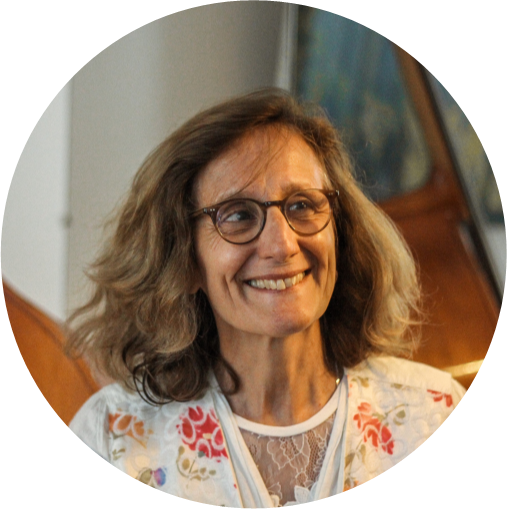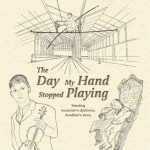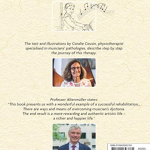
Dystonia Europe is pleased to present the new book by Coralie Cousin, a French therapist who has been close to our Medical and Scientific Advisory Board for many years. We are delighted to welcome this book, as musician’s cramp is rarely documented or reported.
With a degree in physical therapy, Coralie Cousin has been specializing in the rehabilitation of the musician’s hand dystonia for twenty years. Coralie Cousin has set up her medical practice: “Kiné des Musiciens” in Paris, France and has treated and advised more than 6000 musicians.
She is a consultant physiotherapist for renowned institutions: the “École Normale de Musique” (Music School) from Paris and the “Orchestre National d’Ile-de-France” (National Orchestra from Paris area).
Through numerous articles, conferences, radio and television interviews, she tries to help musicians prevent musculoskeletal disorders (MSD).
Presentation of the book by its author: I am extremely pleased to announce the release of my book “The Day My Hand Stopped Playing”, first published in June 2021 in French “De jouer, ma main s’est arrêtée”.
For a long time, I have wanted to share my experience as a musician’s physiotherapist on musician’s dystonia, a tragedy that shakes the artist in his passion.
Musician’s dystonia is a rare disease, which nobody wants to talk about, not even musicians among themselves because it is scary. And yet, it can be found among the prodigies of music, such as Robert Schumann and Leon Fleischer whose careers were prematurely interrupted.
Among the musicians I have treated for dystonia, one has agreed to testify. However, he always refused the format of a narrative.
Then one day, I came across “La guerre des tranchées” in comic book format. For the first time, thanks to the drawings, I saw the battle differently. I then realized that through illustrations, one could better understand the suffering of an artist affected by dystonia.
I then asked this musician to testify in order to write a true story, that of Aurélien, as a comic book with my illustrations. I wanted to demonstrate a slice of life of an artist suffering from dystonia from the patient’s point of view. I didn’t want to limit myself to the therapist’s point of view. He immediately accepted, seduced by the project.
Professor Eckart Altenmüller* found this idea very original and unique, and also agreed to participate in the project by writing the preface.
“Based on a true story, the book explains the path to recovery from dystonia, its diagnosis, but also the ways out.
It tells the story of how multidisciplinary therapists treat, support, and restore the confidence of this artist so that he can play again and get back on stage.”
*(Prof E. Altenmüller is a German physician and musician and one of the leading researchers in the field of neurophysiology and neuropsychology of musicians.)
“The dystonia could have been avoided if I hadn’t waited two years to get the right diagnosis. I probably wouldn’t have fallen so far” says Aurélien in the story.
Through this comic book, I wish to educate the world of music: professionals, amateurs, teachers, students in music schools and conservatories and therapists who meet musicians: “We had to break this wall of silence. The more we talk about it, the more we will inform and the less there will be victims” concluded this musician in his testimony at the beginning of the book.
Today the prevention of musician’s function dystonia is an emergency.
To order the book, visit: https://www.amazon.com/dp/B09K1Z1F8R?ref_=pe_3052080_397514860
Amazon’s user testimony: Addressing the theme of functional dystonia through the experience of a musician (and beyond, all the pathologies that affect musicians) is a brilliant idea. We musicians experience these problems very badly, we quickly sink into panic and despair. Lost, we consult all the opinions, all the medicines, expecting rapid results, even immediate. Thanks to Madame Cousin’s book, we understand how to approach these problems, with more serenity, patience and hope. This perspective, that of the musician, allows us to identify ourselves, gives us hope, the hope of getting out of it, helps us to better understand what practitioners expect of us. It helps us find the calm essential to put into practice the advice we receive.
In addition, this book details a series of exercises very well described and well-drawn, very concrete, which allow each one to build his own protocol of *cure. Thank you, Madame Cousin. When will there be a book for music teachers to help us guide our students?
*Comment to Amazon’s user testimony, there is no known cure of dystonia but many excercises relaxing techniqies etc. can improve dystonia for many patients.
Edwige Ponseel
Vice President, Dystonia Europe
President AMADYS


